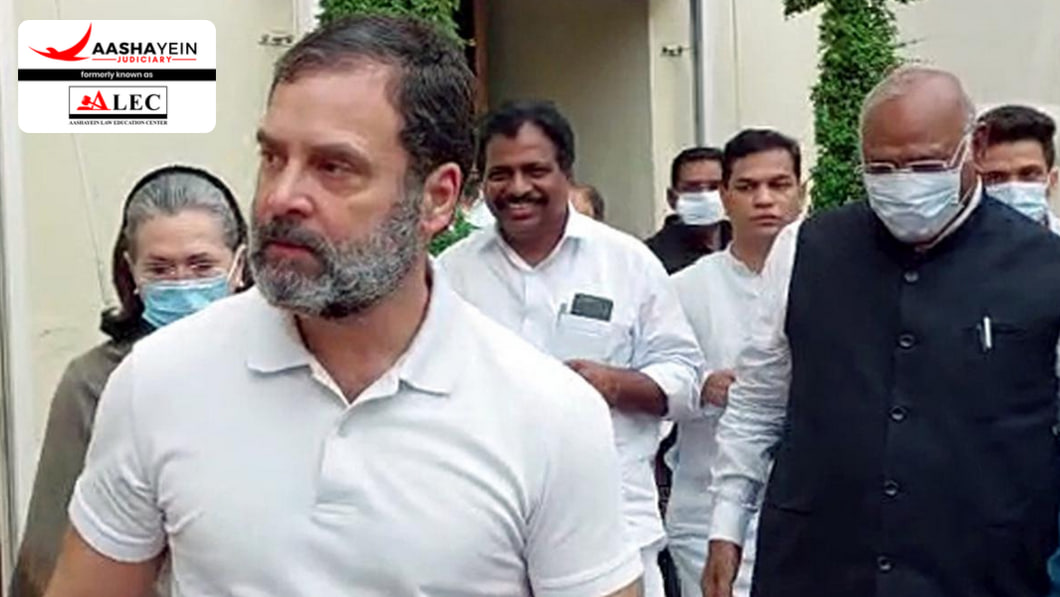Based on a complaint by BJP MP Hemang Joshi, the Delhi Police registered a case against Congress leader Rahul Gandhi after a scuffle broke out outside Parliament on Thursday. The clash occurred during chaotic protests by MPs from both the ruling BJP and the opposition alliance INDIA. The BJP alleged that Rahul Gandhi pushed an MP, causing him to fall on Pratap Chandra Sarangi and injure him. On the other hand, the Congress accused BJP MPs of pressuring its leaders, including party president Mallikarjun Kharge, and held them responsible for the incident.
What Happened outside the parliament
On Thursday, Congress leader Rahul Gandhi was formally charged by the Delhi Police following a complaint by BJP MP Hemang Joshi over a scuffle outside Parliament. The incident occurred during heated protests by members of the ruling BJP and the opposition coalition, INDIA. The BJP alleged that Rahul Gandhi had pushed an MP, causing him to fall on Pratap Chandra Sarangi and injure him. Meanwhile, the Congress accused BJP MPs of creating the chaos and allegedly pushing senior Congress leaders, including party president Mallikarjun Kharge.
Rahul Gandhi and the Congress claimed that BJP MPs were blocking the Leader of the Opposition (LoP) from entering Parliament. Rahul alleged that the BJP MPs had injured Kharge and were trying to disrupt their entry. He added, “Jostling doesn’t stop us; we have the right to enter. The BJP is dishonoring Ambedkar’s legacy and undermining the Constitution.”
Following the altercation, three NDA MPs, including Anurag Thakur and Bansuri Swaraj, filed a complaint at the Parliament Street Police Station. A few hours later, Congress MPs also filed a counter-complaint against the BJP. According to a police officer, a formal case was registered against Rahul Gandhi and other Congress MPs on Thursday night.
You can also read the latest judgment by visiting [Latest Judgment].
For more information, visit [Aashayein Enquiry Section]
What are the charges
Section 117 which deals with Voluntarily causing grievous hurt which is punishable with up to 7 years in prison, a fine, or both.
Section 115 which deals with Voluntarily causing hurt which is punishable with up to 1 year in prison, a fine, or both.
Section 125 which deals with Act of endangering life or personal safety of others which is punishable with up to 3 years in prison, a fine of up to ₹10,000, or both.
Section 131 which deals with Assault or use of criminal force which is punishable with up to 3 months in prison, a fine of up to ₹1,000, or both.
Section 351 which deals with Criminal intimidation which is punishable with up to 7 years in prison, a fine, or both.
Section 3(5) which deals with Common intention states that if several people commit a criminal act with a shared intention, all of them are equally liable as if they committed it alone.
Can Rahul Gandhi be arrested?
Legal experts highlight that if Rahul Gandhi were to be arrested, he would likely be granted bail at the police station itself, as most charges in the FIR are bailable. However, since two of the charges are cognisable, the police can arrest him without a warrant if deemed necessary.
Can Rahul Gandhi be disqualified from Parliament?
If Rahul Gandhi is convicted and sentenced to more than two years in prison, he will face disqualification from Parliament under the Representation of People Act, 1951. Earlier, he had been disqualified due to a defamation conviction, but his membership was restored after the Supreme Court stayed that conviction.

